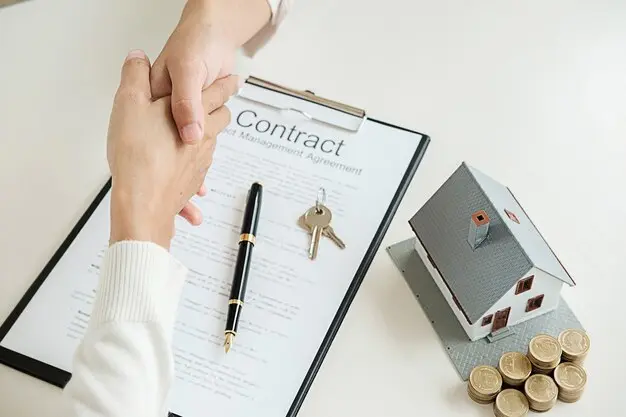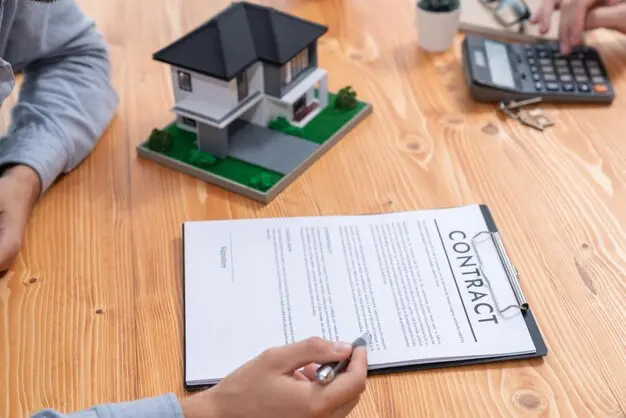Obtaining a license is a crucial step for professionals looking to build a successful career in the world of Real Estate. However, understanding the duration of a real estate license and its renewal process is essential for maintaining active status and continuing to practice in the field. In this guide, we delve into the specifics of how long does a real estate license last, providing valuable insights for aspiring agents and professionals alike. Typically, the duration of a real estate license varies depending on the state in which it’s issued. In most cases, licenses are valid for a period of two to four years before requiring renewal. Renewal requirements often include completing continuing education courses and paying a renewal fee. It’s important for real estate professionals to stay informed about renewal deadlines and fulfill all requirements to avoid license expiration and potential disruptions to their business activities.
Renewing a real estate license demonstrates a commitment to professionalism and ongoing education within the industry. By staying up-to-date with changes in laws, regulations, and market trends, real estate professionals can better serve their clients and maintain a competitive edge in the market. Therefore, understanding how a real estate license last and proactively managing the renewal process is crucial for long-term success in the real estate industry. Explore the world of real estate services.

How Long Does a Real Estate License Last
Duration of a Real Estate License
The duration of a real estate license varies depending on the state in which it is issued. While some states may have specific timeframes for license validity, others may have indefinite durations, subject to renewal requirements. Generally, real estate licenses are valid for a set period, typically ranging from one to four years. Understanding how long does a real estate license last is essential for professionals to stay compliant with state regulations and maintain active licensure status throughout their careers.
Renewal Requirements
To maintain an active real estate license beyond its initial validity period, license holders must fulfill renewal requirements mandated by their state licensing authority. These requirements often include:
1. Continuing Education
Many states require real estate agents to complete a certain number of continuing education (CE) credits during each renewal cycle. These credits may cover topics such as ethics, legal updates, and industry trends, ensuring that agents stay informed and knowledgeable in their field, thus understanding how long does a real estate license last.
2. Renewal Fees
License renewal typically involves payment of a renewal fee to the state licensing authority. The fee amount may vary depending on the state and license type but is generally reasonable compared to the initial licensing fees.
3. Background Checks
Some states require license holders to undergo background checks as part of the renewal process. This ensures that agents continue to meet the ethical and professional standards necessary for practicing real estate.
4.License Activation
In certain states, license renewal may also require the completion of a license activation process, which may involve submitting updated documentation or undergoing additional training. Understanding how long does a real estate license last and the associated renewal requirements is crucial for maintaining active licensure and compliance with state regulations.
Consequences of License Expiration
Failure to renew a real estate license before its expiration date can have serious consequences for agents. These may include:

1. Inability to Practice
An expired license renders an agent ineligible to conduct real estate transactions legally. Understanding how long does a real estate license last is vital to avoid interruptions in practice and ensure agents can continue representing clients, listing properties, and earning commissions promptly upon renewal.
2. Penalties and Fines
Operating with an expired license may result in penalties and fines imposed by the state licensing authority. These penalties can vary depending on the severity of the violation and may include monetary fines, license suspension, or revocation.
3. Loss of Client Trust
Operating with an expired license can damage an agent’s reputation and erode client trust. Clients expect their agents to adhere to professional standards and ethical conduct, and failing to maintain a valid license may raise concerns about an agent’s credibility and reliability, thus highlighting the importance of understanding how long does a real estate license last.
Tips for License Renewal
To ensure a smooth license renewal process, agents can follow these tips:
1. Stay Informed
Stay updated on renewal requirements and deadlines set by your state licensing authority. Familiarize yourself with any changes to CE requirements or renewal procedures to avoid last-minute surprises.
2. Plan Ahead
Start the renewal process well in advance of your license expiration date to allow ample time for completing CE courses, submitting documentation, and paying renewal fees. Understanding how long does a real estate license last is crucial for timely renewal and uninterrupted practice in the field.
3. Keep Records
Maintain organized records of completed CE courses, renewal fees, and any other documentation required for renewal. This will streamline the renewal process and help avoid potential delays or discrepancies.
4. Seek Assistance
If you have any questions or concerns about the renewal process, don’t hesitate to reach out to your state licensing authority or a real estate professional for guidance and assistance. Understanding how long does a real estate license last ensures a smooth continuation of your career.

Understanding how long does a real estate license last and the renewal requirements is crucial for maintaining an active and thriving career in the field. By staying informed about the duration of their license and adhering to renewal procedures, agents can ensure compliance with state regulations and uphold professional standards. Planning ahead and preparing for renewal responsibilities enable agents to continue serving their clients effectively and ethically. Aspiring agents should take the initiative to familiarize themselves with their state’s licensing laws, ensuring they are well-prepared to fulfill the commitments associated with maintaining a real estate license. With diligence and foresight, professionals can navigate the renewal process smoothly, allowing them to focus on delivering exceptional service and achieving success in their real estate endeavors. Inspired? Contact us now to learn more about real estate broker service..
Frequently Asked Questions
1. How long does a real estate license last?
The duration of a real estate license varies by state, typically lasting from one to four years before requiring renewal. It’s crucial to stay informed about your state’s regulations to maintain an active license.
2. What are the renewal requirements for a real estate license?
Renewal requirements often include completing continuing education courses, paying renewal fees, undergoing background checks, and fulfilling any additional state-specific mandates.
3. What happens if my real estate license expires?
Operating with an expired license can lead to penalties, fines, and the inability to legally conduct real estate transactions. It’s essential to renew your license promptly to avoid disruptions in your practice.
4. Are there consequences for failing to renew my real estate license on time?
Yes, consequences may include loss of trust from clients, penalties imposed by the licensing authority, and potential damage to your professional reputation. Understanding renewal deadlines is vital to avoid these issues.
5. How can I prepare for my real estate license renewal?
Plan ahead by staying informed about renewal deadlines, completing required continuing education credits, organizing necessary documentation, and seeking assistance if needed from your state licensing authority or a real estate professional.
6. What steps should I take to maintain an active real estate license?
Stay proactive by keeping track of renewal requirements, completing continuing education courses, paying renewal fees on time, and adhering to state regulations to ensure your license remains active.
7. Can I renew my real estate license online?
Many states offer online renewal options for real estate licenses, making the process convenient and accessible. Check with your state licensing authority for specific instructions on how to renew your license online.




